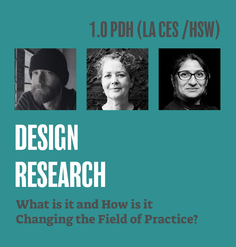How to Develop a Research Question
You've identified a research topic and have done the background information gathering to understand current knowledge and gaps related to that topic. The next step in developing a research proposal is to craft a clear and focused research question.
Put simply, a research question is the question that your research aims to answer. It narrows down a broad topic of interest into a specific area of study (Creswell 2014). The research question serves as the “guiding light” and provides a framework for the research that is being proposed.
Although grant applications, RFPs, and thesis committees may not explicitly ask you to state your research question, doing so will lend clarity and help to define your work – for you as much as for potential funders, partners, and supporters.
Below we offer general guidance on developing a research question.
1) To begin
Do a literature review on your topic, making note of what is known and what is not known. Think about what you are hoping to contribute to this body of knowledge. How does your research idea fit in: Does it seek to answer a question that has not yet been asked…or answered? Does it confirm or add clarity to current understanding? Does it describe, explain, or define something new or in a new way?
Consider the “so what.” Why does the thing you want to research matter to you, and why should it matter to others?
Read examples of research questions. From your literature review, identify some of the specific research questions of others exploring your topic. Ask colleagues about their research questions. Some general examples of good and bad research questions can be found here.
2) CREATE AND Narrow your list
Warm up by making a list of many potential research questions relating to your topic. Use this to create your working list of research questions that you are interested in answering.
Start by eliminating any potential research questions that aren’t researchable, meaning that they can’t be answered through systematic inquiry, such as value-based questions or questions that involve choosing a moral course of action. Nevertheless, non-researchable questions can often be reworked into a form that is researchable. For example, the non-researchable question “Should landscape architecture be taught in high school?” can be modified into the researchable question “Do high schools that offer a landscape architecture course see higher college acceptance rates among students who took that course?”
Your research question is closely related to your research design, so you will need to begin to think through the research strategy and methods that could be used to answer each of your remaining research questions. How would you conduct experiments, obtain data/information, or analyze existing information to answer the question? In addition to confirming that these methods are ethical and legal, consider social and political factors that might affect their feasibility. For example, due to the federal HIPAA Privacy Rule, health information for individuals in the U.S. is very difficult to obtain. Conducting surveys or observations may be problematic in social groups mistrustful of researchers or outsiders.
Next, consider your particular circumstances. Do you have the interest and expertise to carry out the needed research following appropriate methods? Will you have access to necessary information, people/locations, technology, or equipment? Will you have adequate time and funding to be able to address the research question? If not, can the scope of the research question be modified to better align with what you can do?
3) Select and refine your research question
Once you have identified a viable research question or questions, ask yourself the following. Is your research question:
- Clear? Understandable without providing additional background information; who, what, when, where, and why are all evident in the research question
- Focused? Centered on a single question, problem, or issue; not overly broad or generic
- Concise? Stated in as few words as possible while conveying key information
- Feasible? Able to be answered or explored through your research design with all given constraints
- Complex? Not able to be answered with a yes/no or simple statistic; requires investigation and analysis to develop an answer
- Arguable? Open to testing or debate; not presenting information that is accepted fact
4) Continue to test and refine
After you have formulated your research question, test how it might sound to answer the question. Does this align with the potential results or findings you might expect from your proposed research strategy? If not, you may need to adjust either the question or your methods.
As you further develop your research strategy and methods, your research question may need to be changed or redefined. This is especially true for research that will occur in phases or when the scope needs to be adjusted to fit within particular timing or budget constraints, such as those introduced by the parameters of a potential grant. You may even need to break your research question down into more discrete sub-questions that can be answered in different phases of research.
References and Further Reading
Bouchrika, Imed. “How to Write a Research Question: Types, Steps, and Examples.” Research.com. September 8, 2021. https://research.com/research/how-to-write-a-research-question
Creswell, John W. and Timothy C. Guetterman. Educational Research: Planning, Conducting, and Evaluating Quantitative and Qualitative Research, 7th ed. (Upper Saddle River, NJ: Pearson Education, 2024). ISBN-13: 9780138173784 (2024 update)
Deming, Elen and Simon Swaffield. Landscape Architecture Research: Inquiry, Strategy, Design (Hoboken: John Wiley & Sons, 2011), 52. ISBN: 978-1-118-05709-4
“How to Write a Research Question.” The Writing Center. Accessed July 18, 2022. https://writingcenter.gmu.edu/guides/how-to-write-a-research-question
McCombes, Shona. “Developing Strong Research Questions.” Scribbr. April 16, 2019 (revised July 12, 2022). https://www.scribbr.com/research-process/research-questions/
Olsen, Jr., Dan R. “Five Questions for Good Research.” ICE Lab Guidance. Accessed July 18, 2022. http://byu.danrolsenjr.org/ResearchGuidance/ResearchQuestions.html










